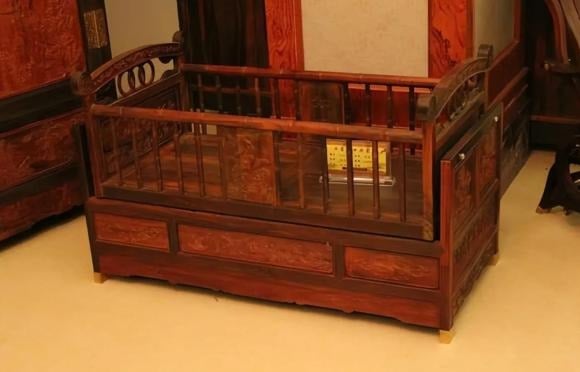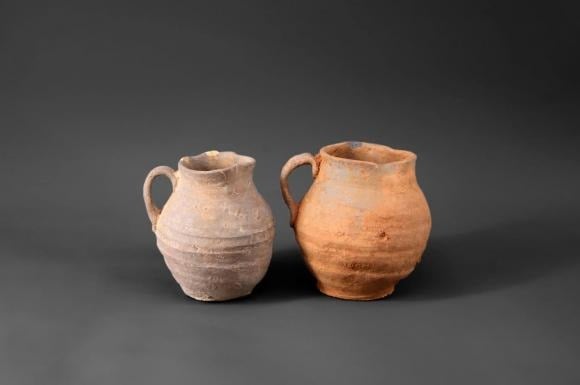First: Baby Crib
In traditional society, bearing children was not only considered a sacred duty but also seen as a symbol of prosperity and lineage continuation. The saying, “Of the three filial impieties, having no descendants is the greatest impiety” reflects the importance of having children in ancient beliefs.
Therefore, the baby crib – the first place a newborn is laid to rest – is not just a piece of furniture but a sacred symbol of good fortune, luck, and the family’s future.
According to folk beliefs, lending the crib to others inadvertently transfers one’s blessing of childbirth. This could lead to a loss of offspring luck and even the end of the family line. Thus, the baby crib is considered taboo to lend, even to close acquaintances.

Second: Pig Slaughtering Knife
The pig slaughtering knife is a distinctive tool in the butchery profession – a trade once considered to carry heavy killing energy and associated with negative spiritual energy. These knives are in constant contact with blood and negative energy, and are believed by folk people to carry a “spirit,” easily affecting the user’s aura.
Ancients believed that if a pig slaughtering knife fell into the wrong hands, it could be used for nefarious purposes, creating killing karma and bringing about disasters. Moreover, lending this bloodied knife was thought to invite trouble into one’s home, causing family unrest. Thus, many traditional butchery families maintain the custom of never lending their slaughtering knives, not even to close friends.
Third: Medicine Pot
In the period before modern medicine developed, healing relied mainly on herbal remedies and folk knowledge. Almost every family owned a special pot for brewing medicine. However, according to ancient beliefs, the medicine pot was easily “infected” by negative energy due to its constant exposure to illnesses.
It was believed that lending this pot to others after brewing medicine for a seriously ill or infectious disease patient could unintentionally transmit the illness to the borrower’s family. Moreover, borrowing the medicine pot was seen as borrowing one’s bad luck, bringing misfortune to the borrower. Thus, the medicine pot was often kept private and not lent out.

Fourth: Walking Stick (Elderly Person’s Cane)
The walking stick is a familiar aid for the elderly in their daily lives. But in traditional culture, the cane is not just a mobility tool; it symbolizes longevity and the blessings of the elderly in the family.
Folk beliefs held that lending the walking stick was akin to “sharing one’s longevity,” causing the elderly person to lose blessings and weaken their life force. Especially for canes passed down by ancestors or bestowed as gifts, they were carefully preserved and never lent out.
Although modern science has progressed and many consider these ancient beliefs superstitious, a deeper look reveals lessons in caution, health preservation, luck, and family tradition.





































